Emotion and sociability such as mentalizing and empathy are essential components in human social life and functioning. However, little is known regards the neurophysiological pattern of negative experiences in immersive environments and how people with different sociabilities respond to the negative emotional stimuli at behavioral and neural levels.
In a study published in NeuroImage (IF: 7.4), a CCBS research team led by Prof. Haiyan Wu, revealed the association between the individual variation of sociality and neurophysiological representation of negative emotions.
The present study investigated the neurophysiological representation of negative affective experiences and whether such variations are associated with one’s sociability (Fig. 1). To this end, four types of negative emotions were included: angry, anxious, fearful, and helpless. Naturalistic neuroimaging under virtual reality, multimodal neurophysiological recording, and behavioral measures were adopted (Fig.2). Moreover, inter-subject representational similarity analysis (IS-RSA) was conducted to capture the individual differences in the neurophysiological representations of negative emotional experiences. First, the researchers revealed a similar electroencephalography response pattern across these negative emotions over the parieto-occipital electrodes (Fig.3). Furthermore, the interpersonal variations regarding mentalizing and empathic abilities were found to be reflected by the neurophysiological responses (Fig. 4 & 5). These findings yielded a common pattern of neurophysiological responses toward different negative affective experiences in VR. Moreover, the current results indicate the potential of taking a sociability perspective for understanding the interpersonal variations in the neurophysiological representation of emotion.
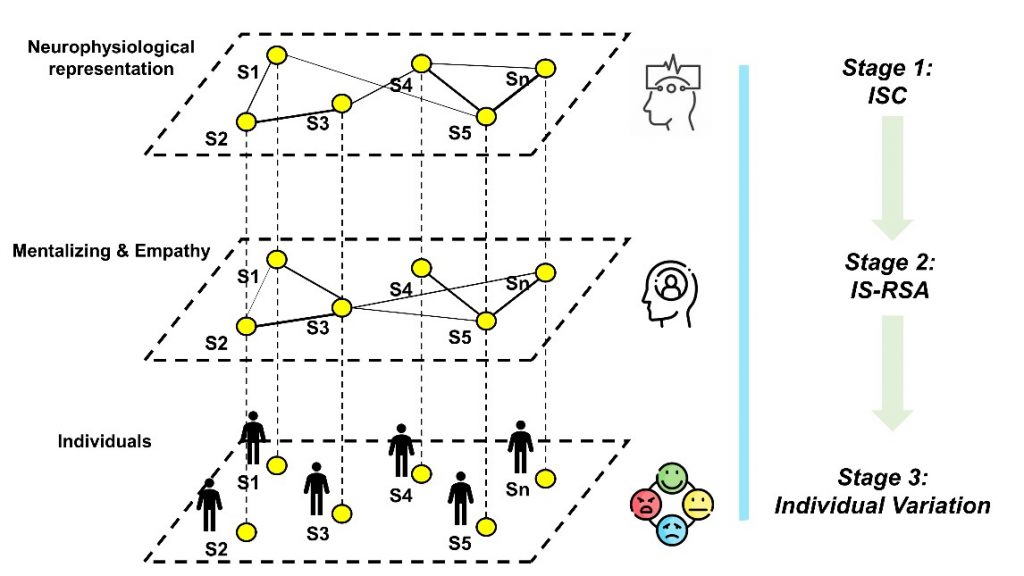
Fig. 1 Structure of current study
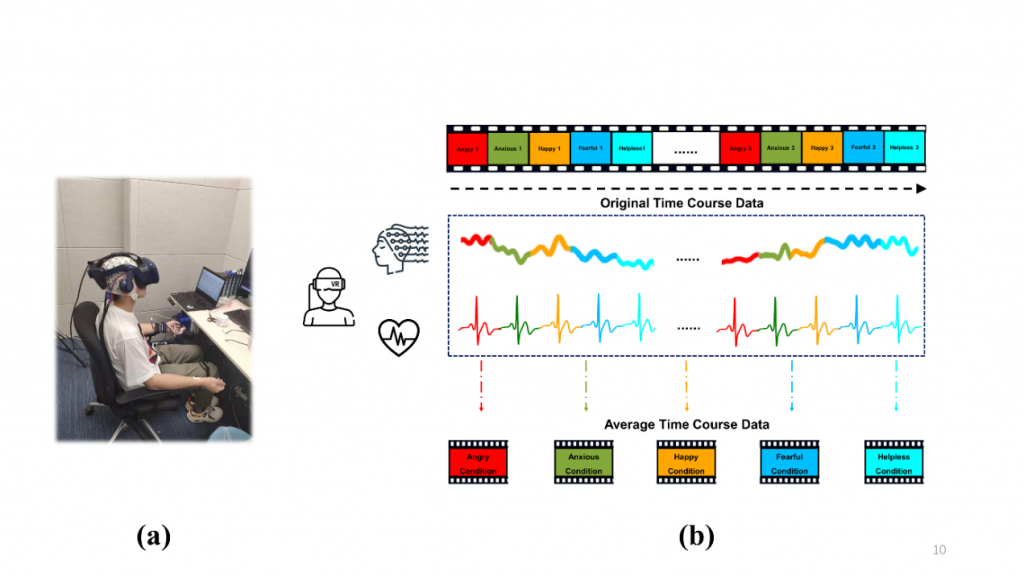
Fig. 2 Data collection platform and naturalistic paradigm
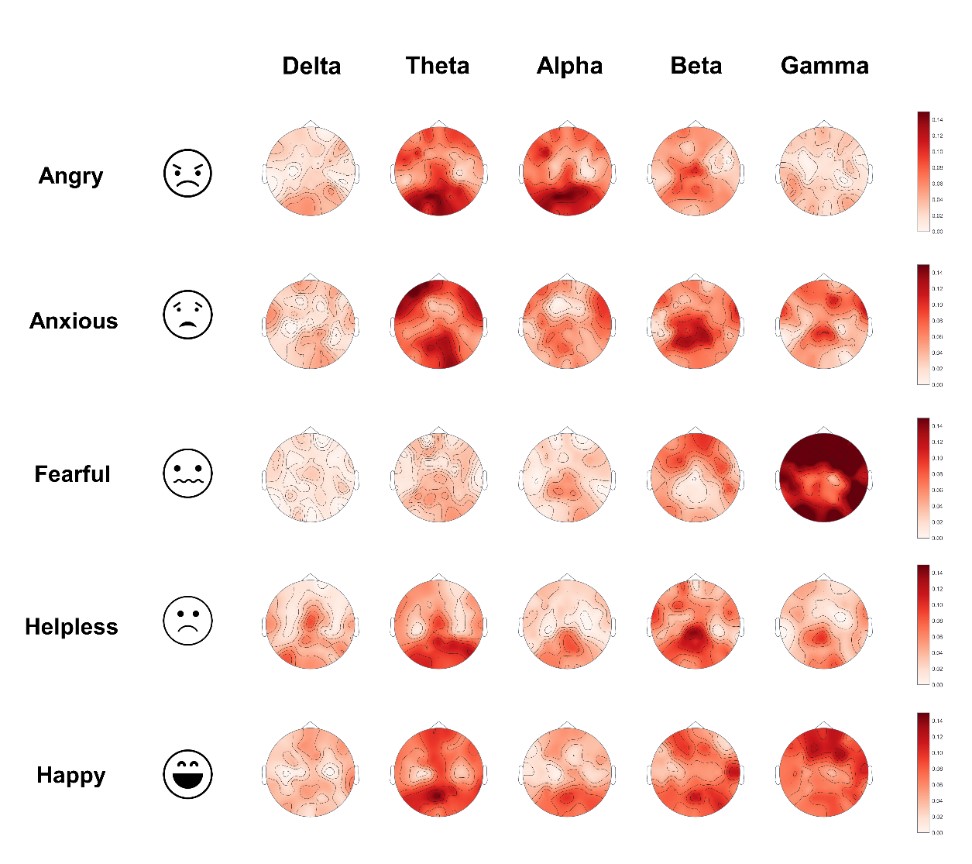
Fig.3 The commo neural response pattern to negative emotions
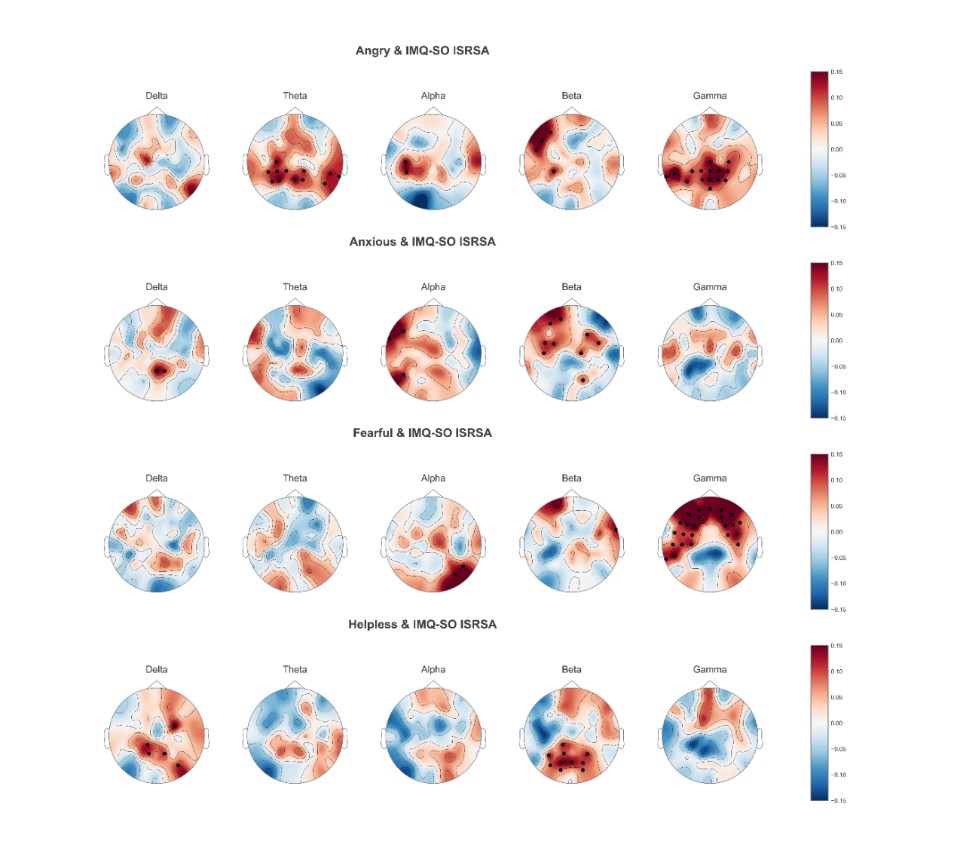
Fig. 4 IS-RSA result of mentalizing ability and neural responses
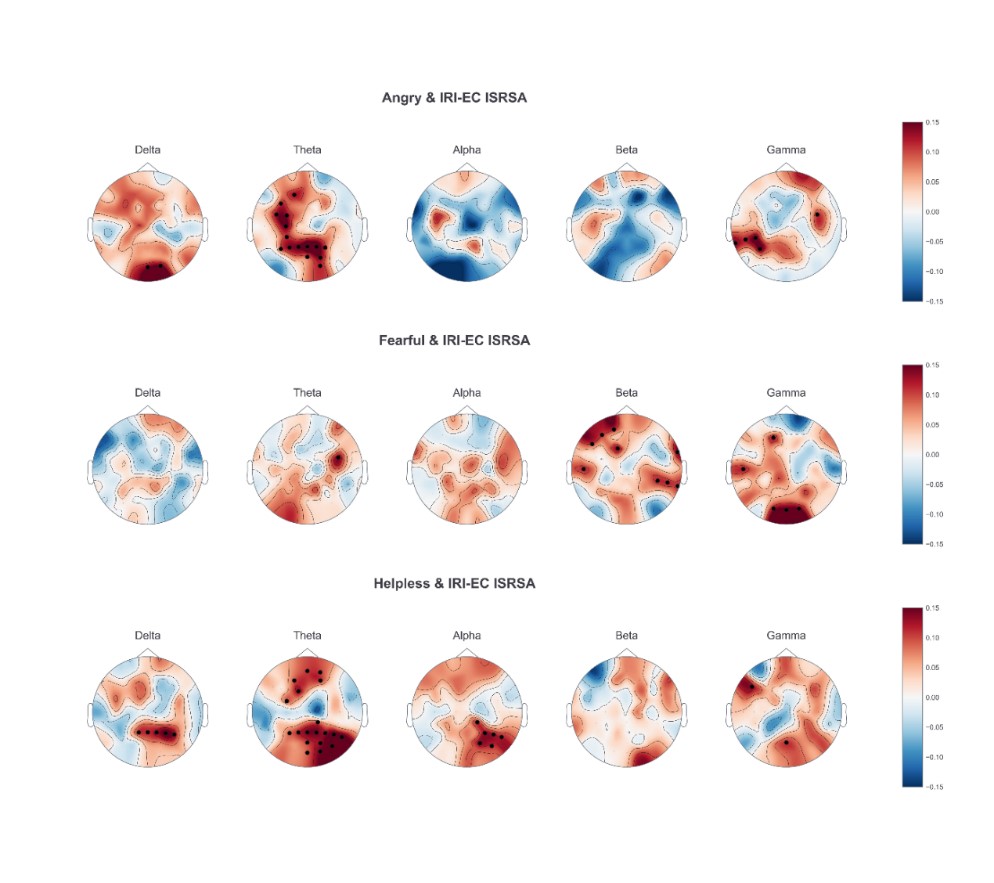
Fig. 5 IS-RSA result of empathic concern and neural responses
This study was done by the undergraduate student Ruien Wang, Runquan Yu, and Yan Tian of Affective, Neuroscience, Decision-Making lab (ANDLab) led by Prof. Haiyan Wu. This study is supported by the Science and Technology Development Fund (FDCT) of Macau (0127/2020/A3), National Natural Science Foundation of China (U1736125), Natural Science Foundation of Guangdong Province (2021A1515012509), Shenzhen-HongKong-Macao Science and Technology Innovation Project (SGDX2020110309280100), and SRG of University of Macau (SRG2020-00027-ICI).
Data & Code availability
The code used in the current study can be downloaded from (https://github.com/andlab-um/Emotion_Neurophysio_IS-RSA ), feel free to use and discuss
Paper link
https://doi.org/10.1016/j.neuroimage.2022.119596
Reference
Wang, R., Yu, R., Tian, Y., Wu, H. (2022) Individual variation in the neurophysiological representation of negative emotions in virtual reality is shaped by sociability. NeuroImage
